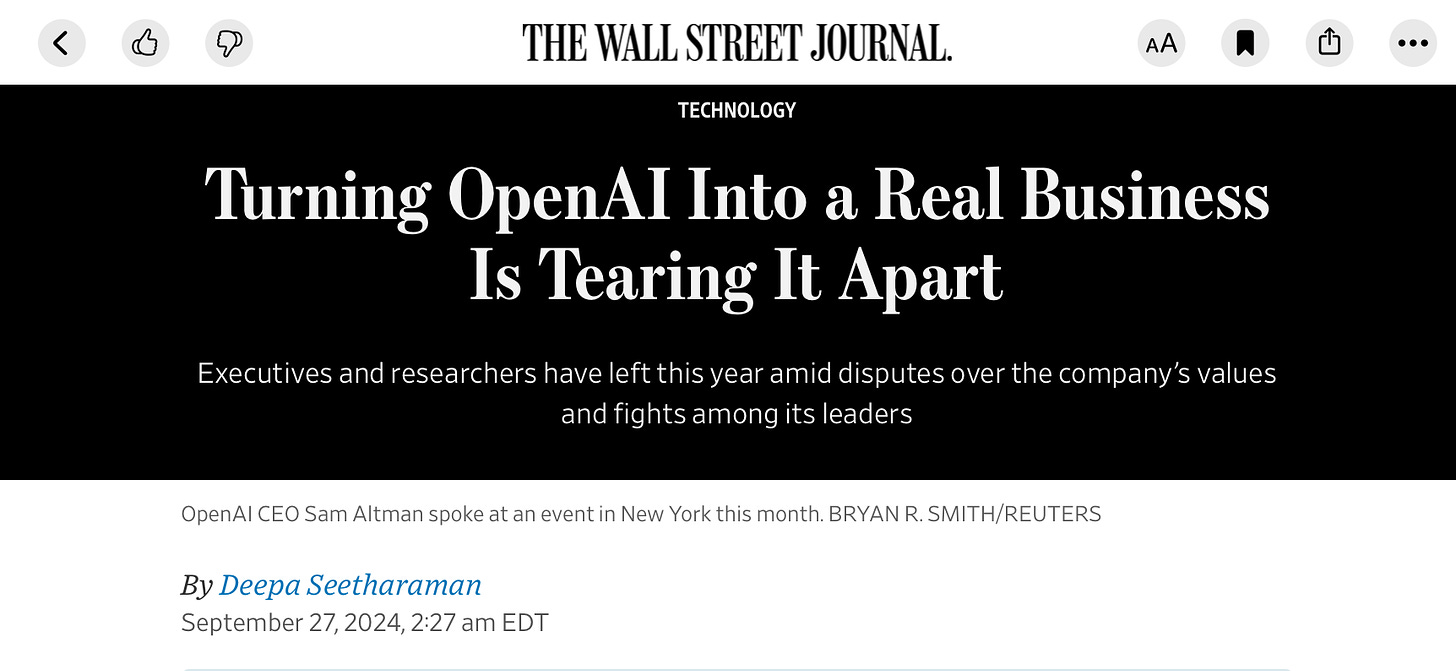Five reasons why OpenAI’s $150B financing might fall apart
And what that might mean for Generative AI more broadly
OpenAI is trying to a raise a lot of money, rumored to be $6.5 or $7 billion dollars, apparently on a $150 billion dollar valuation. They likely need that money quite badly – especially since their main strategy for improving models is simply to make them bigger, a lot bigger, hence a lot more expensive. It is likely that they lose money on every use query, once training costs are factored in. They might even prefer to raise even more money than they are, given their voracious need for GPUs to train ever larger models.
Last week a rumor was going around that their new funding round was oversubscribed, meaning that demand to participate in the round exceeded the amount of money they were willing to take. And, to hear things last week, OpenAI was sitting pretty, in a position to dictate terms (e.g., the minimum size of investment was said to be $250 million).
But that was last week. A lot has changed. And more than that, I wonder how much of that was hype to drive investments, and how much money has been fully committed. My gut feeling is: not much.
Which means that it is at least possible that the whole thing could fall apart.
If the round does fall apart – and investors back down - OpenAI could be in trouble. Their operating loss last year is said to be on the order of $5 billion, and competitors like Meta and Google are clearly gaining on them. They probably don’t have a lot of cash on hand. OpenAI still hasn’t shipped GPT-5 or Sora; if they don’t get a fresh infusion of cash they could run out of money before they do.
And of course OpenAI is in many ways the poster child of the Generative AI revolution. If they stumble, it will have ripple effects. Even if they get some financing, if the terms (not just the valuation but things like liquidation preferences) become less favorable, the Valley will know. People will immediately reconsider Nvidia’s valuation, and start to reconsider other pending and future terms for other companies. For AI companies, life will get harder.
If the financing round doesn’t go through as advertised, it will be a big deal. Perhaps more likely is that the company will make some fairly major concessions to get it over the line. Even that will have implications for the whole industry.
§
Here are four reasons to think that investors will pull out or at least seek to renegotiate:
Keep reading with a 7-day free trial
Subscribe to Marcus on AI to keep reading this post and get 7 days of free access to the full post archives.



